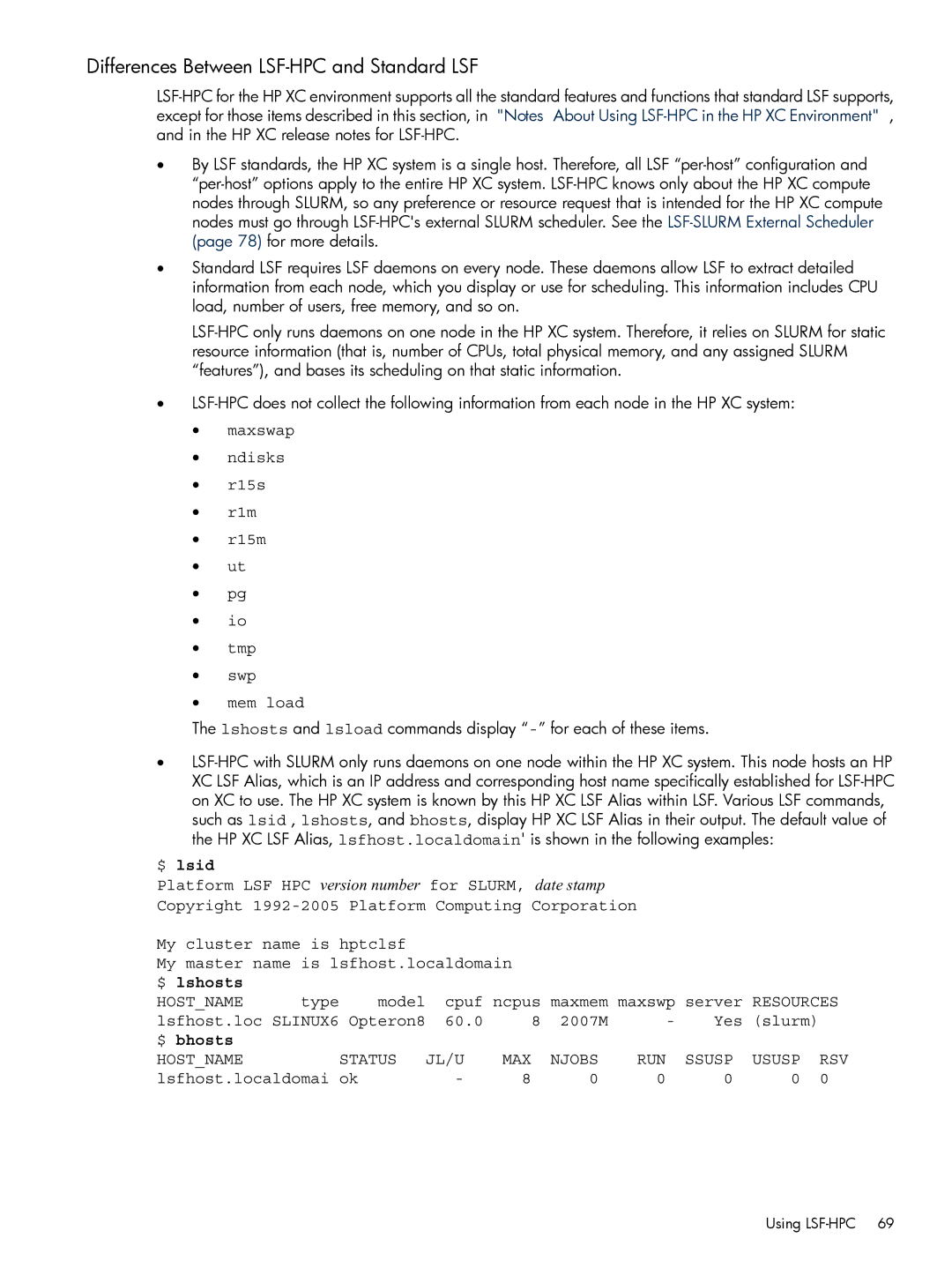Differences Between LSF-HPC and Standard LSF
•By LSF standards, the HP XC system is a single host. Therefore, all LSF
•Standard LSF requires LSF daemons on every node. These daemons allow LSF to extract detailed information from each node, which you display or use for scheduling. This information includes CPU load, number of users, free memory, and so on.
•
•maxswap
•ndisks
•r15s
•r1m
•r15m
•ut
•pg
•io
•tmp
•swp
•mem load
The lshosts and lsload commands display “-” for each of these items.
•
$ lsid
Platform LSF HPC version number for SLURM, date stamp
Copyright
My cluster name is hptclsf |
|
|
|
|
|
|
| ||
My master name is lsfhost.localdomain |
|
|
|
|
| ||||
$ lshosts |
|
|
|
|
|
|
|
|
|
HOST_NAME | type | model | cpuf ncpus maxmem maxswp server | RESOURCES | |||||
lsfhost.loc SLINUX6 Opteron8 | 60.0 |
| 8 2007M | - | Yes | (slurm) |
| ||
$ bhosts |
|
|
|
|
|
|
|
|
|
HOST_NAME |
| STATUS | JL/U | MAX | NJOBS | RUN | SSUSP | USUSP | RSV |
lsfhost.localdomai ok | - | 8 | 0 | 0 | 0 | 0 | 0 | ||
Using
